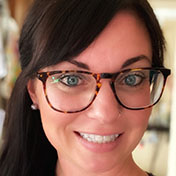As people get older, sleep patterns change, which can create a variety of sleep problems. For example, some people start having trouble falling asleep or staying asleep, while others find themselves waking up earlier than desired in the morning.
Experts suggest middle-aged adults get at least seven hours of sleep every night. But changes during middle adulthood may cause people to get less sleep overall and spend a smaller proportion of time in deep sleep, a sleep stage that helps a person wake feeling refreshed.
What Sleep Problems Can Occur in Middle Adulthood?
A variety of sleep issues become more likely as a person reaches middle adulthood, which is often roughly defined as ages 40 to 60 years old.
- Reduced total sleep time: People spend decreasing amounts of time asleep as they grow from childhood to middle adulthood. People tend to sleep about 10 minutes less with each decade they age.
- Earlier wakings: As a result of changing circadian rhythms, people tend to wake up earlier as they grow older. This can make them feel tired earlier in the evening.
- More daytime naps: Adults of all ages nap for about the same length of time, but the older a person is, the more naps they are likely to take.
- Increased nighttime awakenings: People experience more brief awakenings during sleep as they age, which means they spend more time awake in bed after falling asleep.
- Reduced deep sleep: As a person grows older, they spend less time in deep sleep. This can affect how refreshed a person feels when they rise in the morning. Men may be especially prone to spending less time in deep sleep as they age.
People of all genders experience more sleep problems with age. Multiple factors play a role in the sleep problems of middle adulthood, such as weight gain, medication side effects, mood changes, and other health issues, which all become more common during this time of life.
Although sleep problems can affect anyone during middle adulthood, people who menstruate tend to experience more issues. Sleep troubles often occur during perimenopause and menopause, which begins around age 45 to 55.
Trouble Sleeping?
We can help. Tell us about your sleep to get a free Sleep Doctor score with recommendations for better sleep.
What Are Adult Sleep Patterns by Age?
Experts recommend that adults 18 years of age and older get seven hours of sleep or more a night. Despite needing the same amount of sleep throughout the adult years, young and older adults have different sleep behaviors.
- Young adulthood: Young adults generally sleep more compared to those in middle and older adulthood. The tendency to want to stay up later at night and sleep in mornings peaks in late teens or early 20s, then people slowly begin going to bed and waking up earlier. Young adults are also better able to handle sleep schedule changes.
- Middle adulthood: People in middle adulthood sleep less than young adults, but more than older adults. Between ages 30 and 60, people begin to wake up more during the night and spend more time awake in bed. In middle adulthood, people may start experiencing more sleep troubles due to hormonal changes.
- Older adulthood: Older adults sleep less at night than those in either young or middle adulthood. Those in older adulthood also tend to go to bed earlier and wake up earlier in the morning, sometimes earlier than they would like. They also tend to take naps more often than young and middle adults do.
What Factors Cause Sleep Disturbances in Middle Age?
Middle-aged adults face a number of changes in their health that can affect sleep. For example, hormonal changes, weight gain, and an increase in medical conditions and medication use can alter sleep. People are also more likely to develop sleep disorders as they age, leading to reduced sleep quality and quantity.
Hormonal Changes
As people age, changing hormone levels in the body can affect how they sleep.
- Growth hormone: Growth hormone, which helps tissues and bones grow, reaches its highest levels in the body during adolescence and significantly diminishes during young and middle adulthood. A decline in growth hormone may lessen the amount of time spent in deep sleep.
- Testosterone: In people assigned male at birth, testosterone plays a significant role in many functions, including fat distribution, bone mass, libido, and producing red blood cells. Testosterone begins to decrease in men around 30 years old. Decreasing testosterone levels associated with aging may relate to interruptions in sleep and may decrease the amount of rapid eye movement (REM) sleep.
- Estradiol and follicle stimulating hormone: As people who menstruate transition into menopause, they experience changes in sex hormones. During this transition and after menopause, estradiol declines as follicle stimulating hormone elevates. These hormonal changes may make it harder to fall asleep and stay asleep.
Weight Gain
Weight gain during middle adulthood affects people of all genders. For those assigned female at birth, a decline in estrogen levels contributes to weight gain. For those assigned male at birth, lower testosterone can lessen the amount of lean body mass as fat tissues increase.
Weight changes during middle adulthood can impact how well people sleep. Sleep problems and insomnia are common among people with obesity. And research shows that overweight people face a higher risk of developing the most common type of sleep apnea called obstructive sleep apnea.
Sleep Disorders
As they age, people become more likely to develop a sleep disorder. Sleep disorders interfere with sleep and can affect how a person functions during the day. Sleep disorders that become more common with age include insomnia, obstructive sleep apnea (OSA), and restless legs syndrome.
Other Health Conditions and Medications
People entering middle adulthood may develop medical conditions that interfere with sleep. Some physical and mental conditions, like depression, anxiety, pain, and heart disease, are associated with sleep disorders.
In addition, certain medications taken to treat medical issues cause sleep problems. For example, certain antidepressants can increase the risk of insomnia and make the symptoms of restless leg syndrome worse.
If you think your medication is causing sleep problems, talk with your doctor.
What Are the Risks of Chronic Sleep Deprivation?
Experts recommend people in middle adulthood sleep for seven or more hours every day. Not sleeping enough can have negative physical and mental consequences.
Mentally, sleep deprivation may lead to mood changes, irritability, anxiety, depression, and problems with relationships. Sleep deprivation also increases the risk of developing dementia later in life.
Physically, chronic sleep loss can increase a person’s likelihood of developing obesity, high blood pressure, stroke, kidney disease, type 2 diabetes, and heart disease.
How to Get Quality Sleep
If you’re having trouble sleeping in middle adulthood, practicing healthy sleep habits and knowing when to talk to your doctor can help.
- Stay away from stimulants: Avoid caffeinated beverages such as coffee, tea, energy drinks, and soda late in the day, as well as other stimulants such as nicotine.
- Avoid napping: While you may find a desire to nap more as you enter middle age, daytime naps can disrupt your sleep. If you find yourself needing a nap, try to take it before 3 p.m.
- Exercise: Sticking to a regular exercise routine is beneficial for your overall health as well as your sleep. Experts recommend that you exercise no later than two or three hours before bed.
- Stick to a routine: Wake up at the same time every morning and go to sleep at the same time each night, weekends included.
- Put down the screens: Avoid using technology in the several hours leading up to bedtime if possible. The blue light from electronics can affect melatonin levels and make it more difficult to sleep. Consider blue light blocking glasses if you have trouble putting down your devices at night.
- Reserve the bedroom for sleep: If possible, designate your bedroom as a space for sleep and sex.
- Don’t lay in bed awake: If it takes you more than 20 minutes to get to sleep, get up and do a light activity until you’re tired. For example, reading a book or doing relaxation exercises in another room may help you feel tired and ready for sleep.
When to Talk to Your Doctor
If you have concerns about your sleep, talk to your doctor. Your doctor can talk with you about your sleep and health history and may recommend testing depending on the suspected cause of your sleep problems.
If your doctor is able to determine the cause of your sleep problems, they can talk with you about a treatment plan.
References
Ask the Sleep Doctor
Have questions about sleep? Submit them here! We use your questions to help us decide topics for articles, videos, and newsletters. We try to answer as many questions as possible. You can also send us an email. Please note, we cannot provide specific medical advice, and always recommend you contact your doctor for any medical matters.


